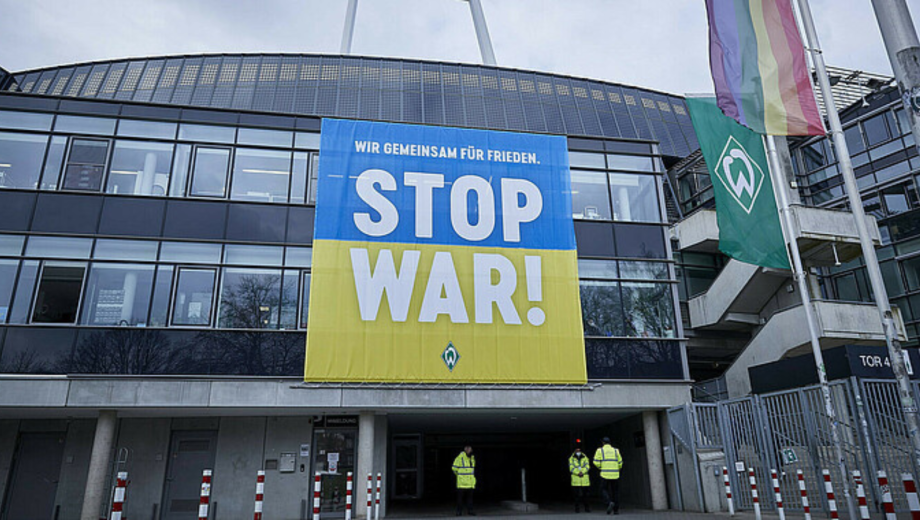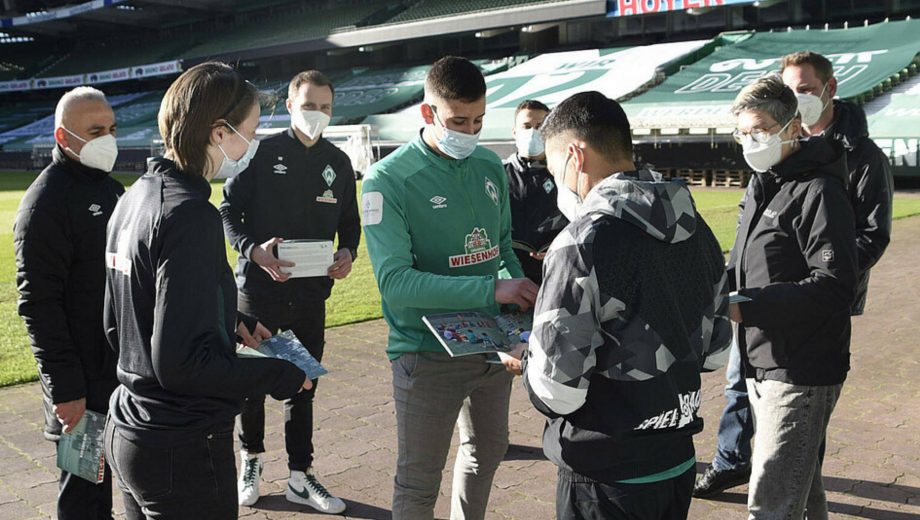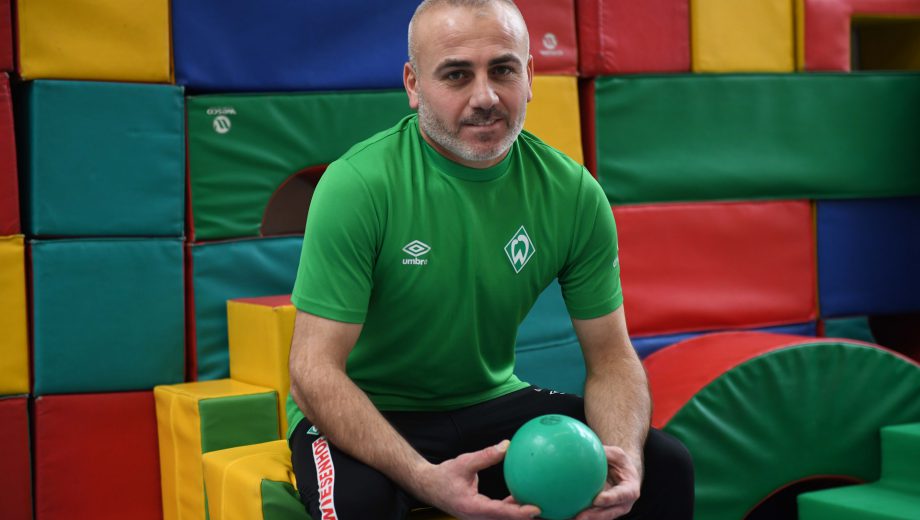Bleib am Ball – WERDER BEWEGT
„Bleib am Ball gives the children and young people the possibility to spend their free time on the football field and find a safe place. It gives them the opportunity as other children to have their own football group, Furthermore, older people who had fled find a place to work for and with young people and give them help to create a safe future.” Anne-Kathrin Laufemann, CSR Director
Background
Due to the refugee crisis, thousands of refugees have arrive in Bremen affected by mental stress. Their everyday life is characterised by spatial an social isolation. Due to communication difficulties, limited financial means and a lack of information, refugees hardly have access to cultural, educational and support offers.
Therefore, WERDER BEWEGT – LEBENSLANG implemented the programme “Bleib am Ball” in cooperation with „Refugio eV“, a consulting and treatment centre for refugees and victims of torture.
Summary
For the past three years WERDER BEWEGT – LEBENSLANG has cooperated with partners from the psychological and therapeutic refugee aid. Within this cooperation, a number of training and recreational programmes for people who have experienced flight have started.
One of these programmes is called “Bleib am Ball”, which is based within the “Spielraum” programme.
Due to the ever growing number of refugees who come to Bremen, the SV Werder Bremen has set itself the task of integrating young refugees into sport clubs and to give them a kind of guidance. WERDER BEWEGT – LEBENSLANG has achieved to convey around 15 kinds to sport clubs so far. Approximately 100 children aged 8 to 18 with an asylum background are set up in six training programmes where they are really thriving whole playing football. Kids who were initially shy and reserved, acquire step by step the new language, develop self-confidence and personality. SPIELRAUM affords them safe space where they are accepted. Additionally, the kids take part in a couple of tournaments.
The training sessions are guided by SV Werder Bremen coaches with a migration background. Due to the fact that coaches and players have the same region of origin, language barriers can be overcome. The coaches try to talk as much German as they can to support them in learning a new language. Some of the coaches have achieved their trainer license. The project’s success can be very well represented in the history of the coaches. All came to Germany as refugees. The project has helped them to find their way in Germany. They gained experience via internships and took part in educations for coaches.

,,Ferien mit Herz” – Werder Bremen











